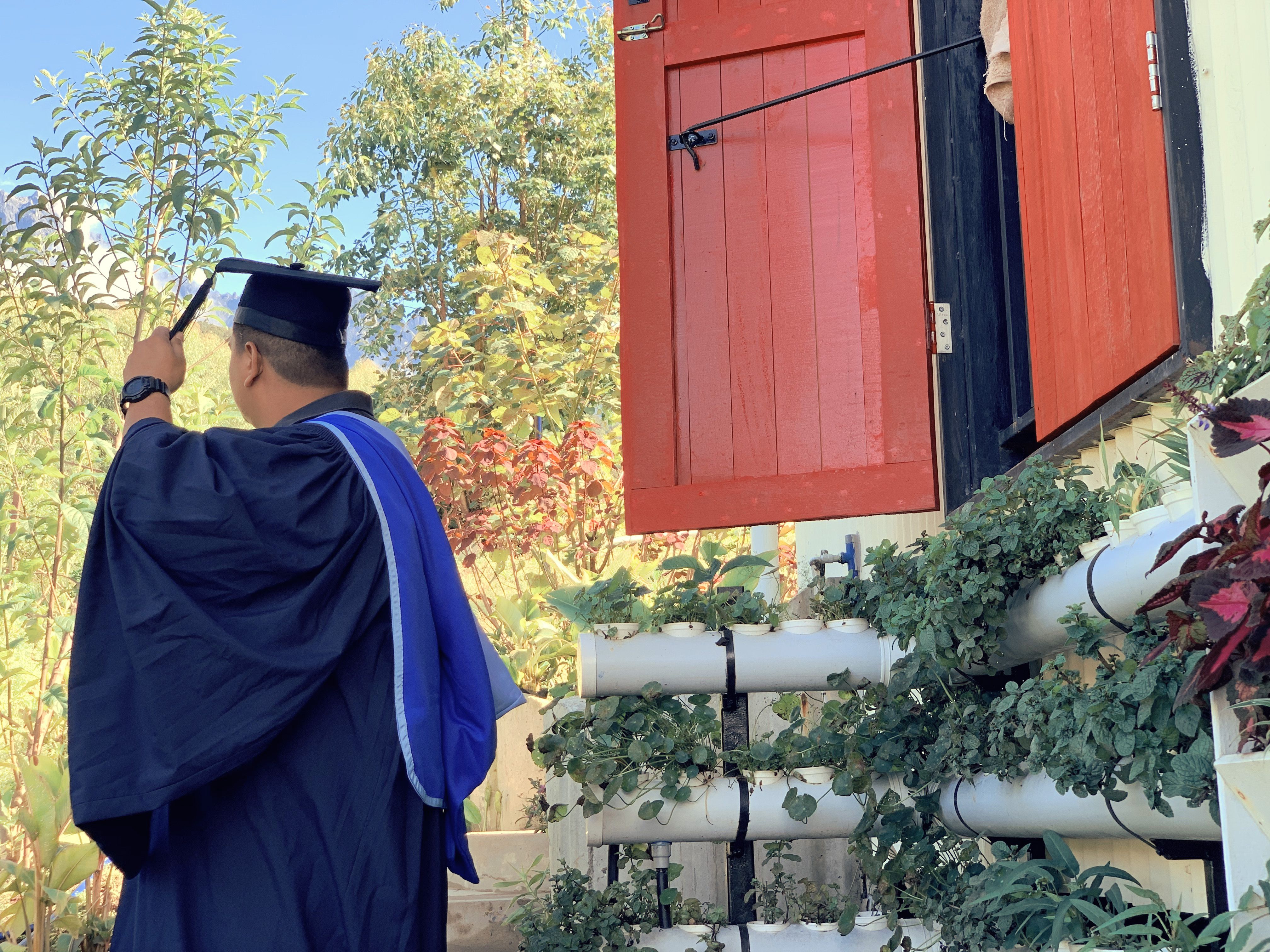Mentors with a Difference
“I came out of prison and now I can give back to society, because society gave me a lot.”

JOSEPH Wong has been teaching juveniles for the past five years—first at Sekolah Integriti Kajang (SIK), and then after it moved to the Puncak Alam correctional centre (PKPA) in Shah Alam, Selangor in 2018.
The pre-release “Kelas CARE” organised by Malaysian CARE is in the heat of the afternoon. It can be a challenge for the students to stay awake, let alone stay on topic.
“I’ve never seen their full focus on the trainer,” says Wong, who is a staffer with the Community Development department of Malaysian CARE. But last month (February), he brought an ex-juvenile, Ajib (not his real name), with him.
“I was quite surprised,” says Wong. “He completely caught their attention. They really looked at him and listened to him.”
For the past year, seven ex-prisoners have been allowed in as facilitators for the new pre-release programme at Kajang men’s prison, as well as the older programme at PKPA. At PKPA last month, Ajib conducted a lesson about the danger of drugs and cigarettes, which was the subject that day. But he also talked about his own experience at SIK and his life after release. “I told them how I faced all the challenges and how I created my own second chance for my life,” he says.
When he was 18, he was sentenced to three years in SIK. “I wanted to focus on the future,” he says. “It was not the end of my life.”
At SIK, he sat for the STPM exam and scored four As. He attended the pre-release class and also picked up as many other computer skills as he could.
After serving his sentence, Ajib was accepted to a local university. Malaysian CARE assisted in sourcing sponsors for his first year there and the Discharged Prisoners Aid Society sponsored the rest.
In between his classes, he found time to represent his university in public speaking and in sports, gave free tuition to needy undergraduates, helped with a charity programme for an NGO working with people with special needs, and gave motivational talks at two Henry Gurney schools for young offenders. “My caseworker at Malaysian CARE, Fred Foo, often told me to be sure to balance my studies with all these programmes,” he remembers.
But despite all the extra-curricular activities, Ajib earned a Bachelor’s degree with Upper Second-Class Honours. Today, after working as a part-time lecturer at his alma mater and as a brand ambassador for several local and international non-governmental organisations, he is working as a fundraiser for another international NGO in Kuala Lumpur.
At the end of the class, two or three of the juveniles came to Ajib with questions about further studies and whether there could be life after prison.
“I said yes, because I am the testimony,” he says. “I came out of prison and now I can give back to society, because society gave me a lot. People knew my background but still supported me.”
Wong could see the effect on the juveniles at PKPA. “We can tell them 10 times about how they have to change,” he says, “but it cannot compare with the one time Ajib said that to them.”
Last December, another ex-juvenile took part in the Hope Programme at PKPA. Nilesh (not his real name) had composed a song about his struggle and his love for his mother.
The inmates could relate to the lyrics, recalls Sam Lim, coordinator with Malaysian CARE’s Community Development department. “They were all sniffling and sobbing as they rehearsed the song before the performance.”
Nilesh is now practising his skill—car painting—and living with his uncle.
Allowing ex-prisoners to become mentors was a “brilliant move”, says Lim. “The words of those who have gone through prison and been successful make a big impact on those looking forward to having a decent life after prison.”
This article and photos first appeared in "Sunday Star" on 8 March 2020. Reprinted with permission.
by Santha Oorjitham
Santha, Coordinator with the Policy, Advocacy and Research department, has been inspired by the ex-prisoners she has met.